#arab history
Text
17/12/23 this masterlist has been completely, vetted, revamped and reformatted with free access to all reading and viewing material. It will be updated and edited periodically so please try and reblog the original post if you're able.
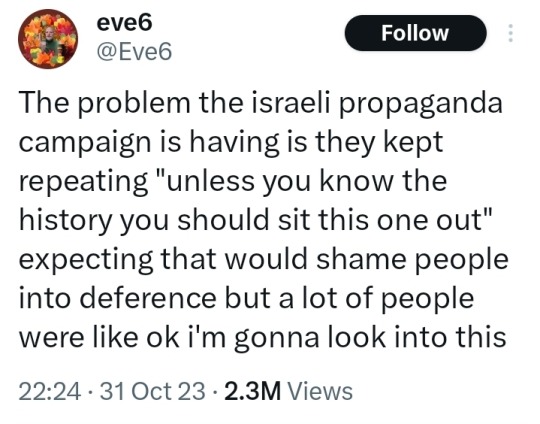
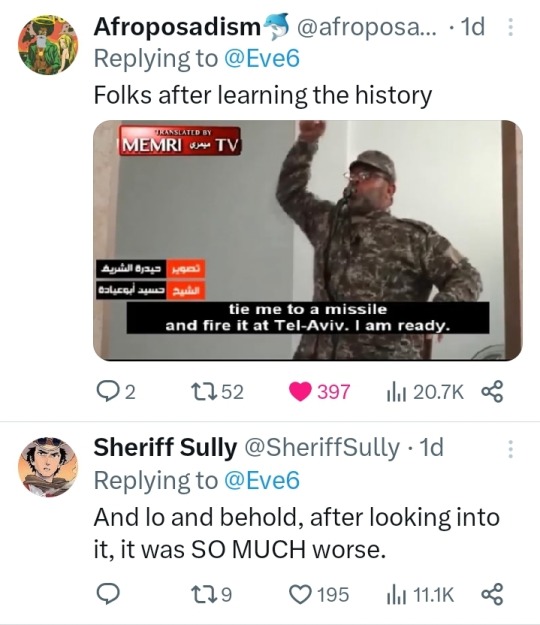

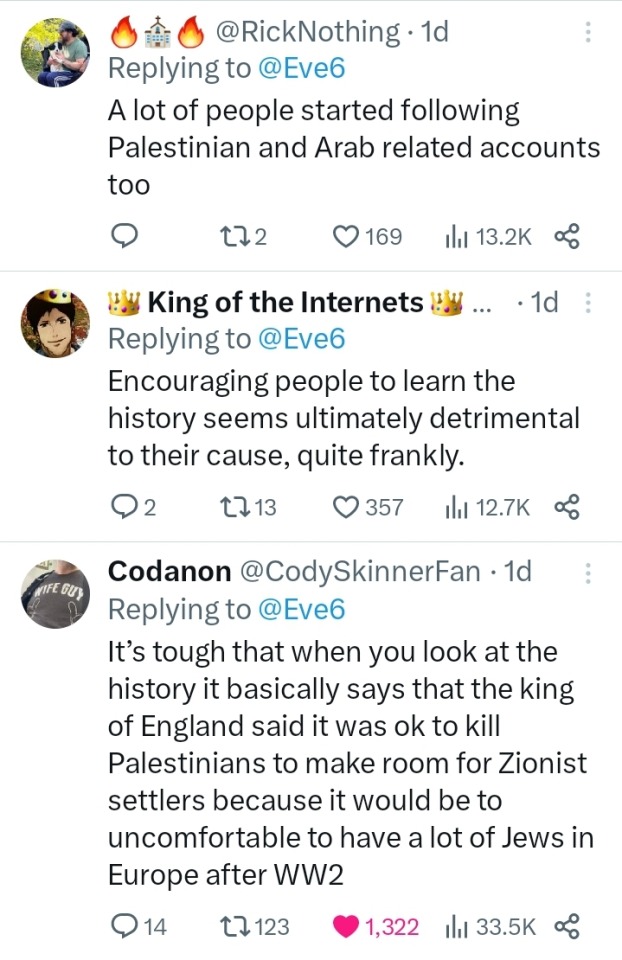
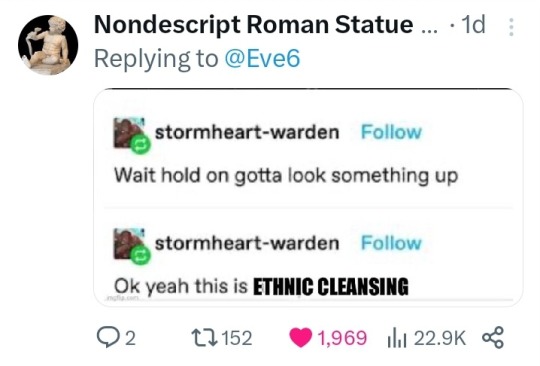
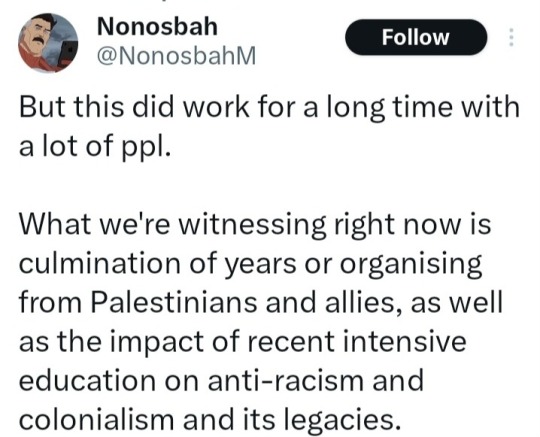
The Big Damn List Of Stuff They Said You Didn't Know
(Yes, it's a lot. Just choose your preferred medium and then pick one.)
Podcasts
Backgrounders and Quick Facts
Interactive Maps
Teach-Out Resources
Reading Material (free)
Films and Documentaries (free)
Non-Governmental Organizations
Social Media
How You Can Help
Podcasts
Cocktails & Capitalism: The Story of Palestine Part 1, Part 3
It Could Happen Here: The Cheapest Land is Bought with Blood, Part 2, The Balfour Declaration
Citations Needed: Media narratives and consent manufacturing around Israel-Palestine and the Gaza Siege
The Deprogram: Free Palestine, ft. decolonizatepalestine.com.
Backgrounders and Quick Facts
The Palestine Academy: Palestine 101
Institute for Middle East Understanding: Explainers and Quick Facts
Interactive Maps
Visualizing Palestine
Teach-Out Resources
1) Cambridge UCU and Pal Society
Palestine 101
Intro to Palestine Film + Art + Literature
Resources for Organising and Facilitating)
2) The Jadaliya YouTube Channel of the Arab Studies Institute
Gaza in Context Teach-in series
War on Palestine podcast
Updates and Discussions of news with co-editors Noura Erakat and Mouin Rabbani.
3) The Palestine Directory
History (virtual tours, digital archives, The Palestine Oral History Project, Documenting Palestine, Queering Palestine)
Cultural History (Palestine Open Maps, Overdue Books Zine, Palestine Poster Project)
Contemporary Voices in the Arts
Get Involved: NGOs and campaigns to help and support.
3) PalQuest Interactive Encyclopedia of the Palestine Question.
4) The Palestine Remix by Al Jazeera
Books and Articles
Free reading material
My Gdrive of Palestine/Decolonization Literature (nearly all the books recommended below + books from other recommended lists)
Five free eBooks by Verso
Three Free eBooks on Palestine by Haymarket
LGBT Activist Scott Long's Google Drive of Palestine Freedom Struggle Resources
Recommended Reading List
Academic Books
Edward Said (1979) The Question of Palestine, Random House
Ilan Pappé (2002)(ed) The Israel/Palestine Question, Routledge
Ilan Pappé (2006) The Ethnic Cleansing of Palestine, OneWorld Publications
Ilan Pappé (2011) The Forgotten Palestinians: A History of the Palestinians in Israel, Yale University Press
Ilan Pappé (2015) The Idea of Israel: A History of Power and Knowledge, Verso Books
Ilan Pappé (2017) The Biggest Prison On Earth: A History Of The Occupied Territories, OneWorld Publications
Ilan Pappé (2022) A History of Modern Palestine, Cambridge University Press
Rosemary Sayigh (2007) The Palestinians: From Peasants to Revolutionaries, Bloomsbury
Andrew Ross (2019) Stone Men: the Palestinians who Built Israel, Verso Books
Rashid Khalidi (2020) The Hundred Years’ War on Palestine: A History of Settler Colonialism and Resistance 1917–2017
Ariella Azoulay (2011) From Palestine to Israel: A Photographic Record of Destruction and State Formation, 1947-1950, Pluto Press
Ariella Azoulay and Adi Ophir (2012) The One-State Condition: Occupation and Democracy in Israel/Palestine, Stanford University Press.
Jeff Halper (2010) An Israeli in Palestine: Resisting Dispossession, Redeeming Israel, Pluto Press
Jeff Halper (2015) War Against the People: Israel, the Palestinians and Global Pacification
Jeff Halper (2021) Decolonizing Israel, Liberating Palestine: Zionism, Settler Colonialism, and the Case for One Democratic State, Pluto Press
Anthony Loewenstein (2023) The Palestine Laboratory: How Israel exports the Technology of Occupation around the World
Noura Erakat (2019) Justice for Some: Law and the Question of Palestine, Stanford University Press
Neve Gordon (2008) Israel’s Occupation, University of California Press
Joseph Massad (2006) The Persistence of the Palestinian Question: Essays on Zionism and the Palestinians, Routledge
Memoirs
Edward Said (1986) After the Last Sky: Palestine Lives, Columbia University PEdward Saidress
Edward Said (2000) Out of Place; A Memoir, First Vintage Books
Mourid Barghouti (2005) I saw Ramallah, Bloomsbury
Hatim Kanaaneh (2008) A Doctor in Galilee: The Life and Struggle of a Palestinian in Israel, Pluto Press
Raja Shehadeh (2008) Palestinian Walks: Into a Vanishing Landscape, Profile Books
Ghada Karmi (2009) In Search of Fatima: A Palestinian Story, Verso Books
Vittorio Arrigoni (2010) Gaza Stay Human, Kube Publishing
Ramzy Baroud (2010) My Father Was a Freedom Fighter: Gaza's Untold Story, Pluto Press
Izzeldin Abuelaish (2011) I Shall Not Hate: A Gaza Doctor’s Journey on the Road to Peace and Human Dignity, Bloomsbury
Atef Abu Saif (2015) The Drone Eats with Me: A Gaza Diary, Beacon Press
Anthologies
Voices from Gaza - Insaniyyat (The Society of Palestinian Anthropologists)
Letters From Gaza • Protean Magazine
Salma Khadra Jayyusi (1992) Anthology of Modern Palestinian Literature, Columbia University Press
ASHTAR Theatre (2010) The Gaza Monologues
Refaat Alreer (ed) (2014) Gaza Writes Back, Just World Books
Refaat Alreer, Laila El-Haddad (eds) (2015) Gaza Unsilenced, Just World Books
Cate Malek and Mateo Hoke (eds)(2015) Palestine Speaks: Narrative of Life under Occupation, Verso Books
Jehad Abusalim, Jennifer Bing (eds) (2022) Light in Gaza: Writings Born of Fire, Haymarket Books
Short Story Collections
Ghassan Kanafani, Hilary Kilpatrick (trans) (1968) Men in the Sun and Other Palestinian Stories, Lynne Rienner Publishers
Ghassan Kanafani, Barbara Harlow, Karen E. Riley (trans) (2000) Palestine’s Children: Returning to Haifa and Other Stories, Lynne Rienner Publishers
Atef Abu Saif (2014) The Book of Gaza: A City in Short Fiction, Comma Press
Samira Azzam, Ranya Abdelrahman (trans) (2022) Out Of Time: The Collected Short Stories of Samira Azzam
Sonia Sulaiman (2023) Muneera and the Moon; Stories Inspired by Palestinian Folklore
Essay Collections
Edward W. Said (2000) Reflections on Exile and Other Essays, Harvard University Press
Salim Tamari (2008) Mountain against the Sea: Essays on Palestinian Society and Culture, University of California Press
Fatma Kassem (2011) Palestinian Women: Narratives, histories and gendered memory, Bloombsbury
Ramzy Baroud (2019) These Chains Will Be Broken: Palestinian Stories of Struggle and Defiance in Israeli Prisons, Clarity Press
Novels
Sahar Khalifeh (1976) Wild Thorns, Saqi Books
Liyana Badr (1993) A Balcony over the Fakihani, Interlink Books
Hala Alyan (2017) Salt Houses, Harper Books
Susan Abulhawa (2011) Mornings in Jenin, Bloomsbury
Susan Abulhawa (2020) Against the Loveless World, Bloomsbury
Graphic novels
Joe Sacco (2001) Palestine
Joe Sacco (2010) Footnotes in Gaza
Naji al-Ali (2009) A Child in Palestine, Verso Books
Mohammad Sabaaneh (2021) Power Born of Dreams: My Story is Palestine, Street Noise Book*
Poetry
Fady Joudah (2008) The Earth in the Attic, Sheridan Books,
Ghassan Zaqtan, Fady Joudah (trans) (2012) Like a Straw Bird It Follows Me and Other Poems, Yale University Press
Hala Alyan (2013) Atrium: Poems, Three Rooms Press*
Mohammed El-Kurd (2021) Rifqa, Haymarket Books
Mosab Abu Toha (2022) Things You May Find Hidden in My Ear: Poems from Gaza, City Lights Publishers
Tawfiq Zayyad (2023) We Are Here to Stay, Smokestack Books*
The Works of Mahmoud Darwish
Poems
Rafeef Ziadah (2011) We Teach Life, Sir
Nasser Rabah (2022) In the Endless War
Refaat Alareer (2011) If I Must Die
Hiba Abu Nada (2023) I Grant You Refuge/ Not Just Passing
[All books except the ones starred are available in my gdrive. I'm adding more each day. But please try and buy whatever you're able or borrow from the library. Most should be available in the discounted Free Palestine Reading List by Pluto Press, Verso and Haymarket Books.]
Human Rights Reports & Documents
Information on current International Court of Justice case on ‘Legal Consequences arising from the Policies and Practices of Israel in the Occupied Palestinian Territory, including East Jerusalem’
UN Commission of Inquiry Report 2022
UN Special Rapporteur Report on Apartheid 2022
Amnesty International Report on Apartheid 2022
Human Rights Watch Report on Apartheid 2021
Report of the United Nations Fact-Finding Mission on the Gaza Conflict’ 2009 (‘The Goldstone Report’)
Advisory Opinion on the Legal Consequences of the Construction of a Wall in the Occupied Palestinian Territory, International Court of Justice, 9 July 2004
Films
Documentaries
Jenin, Jenin (2003) dir. Mohammed Bakri
Massacre (2005) dir. Monica Borgmann, Lokman Slim, Hermann Theissen
Slingshot HipHop (2008) dir. Jackie Reem Salloum
Waltz with Bashir (2008) dir. Ari Folman † (also on Amazon Prime)
Tears of Gaza (2010) dir. Vibeke Løkkeberg (also on Amazon Prime)
5 Broken Cameras (2011) dir. Emad Burnat (also on Amazon Prime)
The Gatekeepers (2012) dir. Dror Moreh (also on Amazon Prime)
The Great Book Robbery (2012) | Al Jazeera English
Al Nakba (2013) | Al Jazeera (5-episode docu-series)
The Village Under the Forest (2013) dir. Mark J. Kaplan
Where Should The Birds Fly (2013) dir. Fida Qishta
Naila and the Uprising (2017) (also on Amazon Prime)
GAZA (2019) dir. Andrew McConnell and Garry Keane
Gaza Fights For Freedom (2019) dir. Abby Martin
Little Palestine: Diary Of A Siege (2021) dir. Abdallah Al Khatib
Palestine 1920: The Other Side of the Palestinian Story (2021) | Al Jazeera World Documentary
Gaza Fights Back (2021) | MintPress News Original Documentary | dir. Dan Cohen
Innocence (2022) dir. Guy Davidi
Short Films
Fatenah (2009) dir. Ahmad Habash
Gaza-London (2009) dir. Dina Hamdan
Condom Lead (2013) dir. Tarzan Nasser, Arab Nasser
OBAIDA (2019) | Defence for Children Palestine
Theatrical Films
Divine Intervention (2002) | dir. Elia Suleiman (also on Netflix)
Paradise Now (2005) dir Hany Abu-Assad (also on Amazon Prime)
Lemon Tree (2008) (choose auto translate for English subs) (also on Amazon Prime)
It Must Be Heaven (2009) | dir. Elia Suleiman †
The Promise (2010) mini-series dir. Peter Kosminsky (Part 1, Part 2, Part 3, Part 4)
Habibi (2011)* dir. Susan Youssef
Omar (2013)* dir. Hany Abu-Assad †
3000 Nights (2015)* dir. Mai Masri
Foxtrot (2017) dir. Samuel Maoz (also on Amazon Prime)
The Time that Remains (2019) dir. Elia Suleiman †
Gaza Mon Amour (2020) dir. Tarzan Nasser, Arab Nasser †
The Viewing Booth (2020) dir. Ra'anan Alexandrowicz (on Amazon Prime and Apple TV)
Farha (2021)* | dir. Darin J. Sallam
Palestine Film Institute Archive
All links are for free viewing. The ones marked with a star (*) can be found on Netflix, while the ones marked † can be downloaded for free from my Mega account.
If you find Guy Davidi's Innocence anywhere please let me know, I can't find it for streaming or download even to rent or buy.
In 2018, BDS urged Netflix to dump Fauda, a series created by former members of IOF death squads that legitimizes and promotes racist violence and war crimes, to no avail. Please warn others to not give this series any views. BDS has not called for a boycott of Netflix. ]
Planning to link two separate posts here listing all the books in my drive and all the films I couldn't include here. Check back for updates.
NGOs
The Boycott, Divestment, Sanctions (BDS) Movement
Medical Aid for Palestinians
Euro-Mediterranean Human Rights Monitor
Palestine Defence for Children International
Palestinian Feminist Collective
Al-Shabaka: The Palestinian Policy Network
Addameer Prisoner Support and Human Rights Association
Institute for Palestine Studies
Al Haq
Artists for Palestine
The Palestine Museum
Jewish Currents
B’Tselem
DAWN
Social Media
Palestnians on Tumblr
@el-shab-hussein
@killyfromblame
@apollos-olives
@fairuzfan
@palipunk
@sar-soor
@nabulsi
@ibtisams
@wearenotjustnumbers2
@90-ghost (is in Gaza right now. Please donate to his GFM and boost it.)
@tamarrud
Allies and advocates (not Palestinian)
@bloglikeanegyptian beautiful posts that read like op-eds
@vyorei daily news roundups
@luthienne resistance through prose
@decolonize-the-left scoop on the US political plans and impacts
@feluka
(Please don't expect any of these blogs to be completely devoted to Palestine allyship; they do post regularly about it but they're still personal blogs and post whatever else they feel like. Do not harrass them.)
Gaza journalists
Motaz Azaiza IG: @motaz_azaiza | Twitter: @azaizamotaz9 | TikTok: _motaz.azaiza (left Gaza as of Jan 23)
Bisan Owda IG and TikTok: wizard_bisan1 | Twitter: @wizardbisan
Saleh Aljafarawi IG: @saleh_aljafarawi | Twitter: @S_Aljafarawi | TikTok: @saleh_aljafarawi97
Plestia Alaqad IG: @byplestia | TikTok: @plestiaaqad (left Gaza)
Wael Al-Dahdouh IG: @wael_eldahdouh | Twitter: @WaelDahdouh (left Gaza as of Jan 13)
Hind Khoudary IG: @hindkhoudary | Twitter: @Hind_Gaza
Ismail Jood IG and TikTok: @ismail.jood (announced end of coverage on Jan 25)
Yara Eid IG: @eid_yara | Twitter: @yaraeid_
Eye on Palestine IG: @eye.on.palestine | Twitter: @EyeonPalestine | TikTok: @eyes.on.palestine
Muhammad Shehada Twitter: @muhammadshehad2
(Edit: even though some journos have evacuated, the footage up to the end of their reporting is up on their social media, and they're also doing urgent fundraisers to get their families and friends to safety. Please donate or share their posts.)
News organisations
The Electronic Intifada Twitter: @intifada | IG: @electronicintifada
Quds News Network Twitter and Telegram: @QudsNen | IG: @qudsn (Arabic)
Times of Gaza IG: @timesofgaza | Twitter: @Timesofgaza | Telegram: @TIMESOFGAZA
The Palestine Chronicle Twitter: @PalestineChron | IG: @palestinechron | @palestinechronicle
Al-Jazeera Twitter: @AJEnglish | IG and TikTok: @aljazeeraenglish, @ajplus
Middle East Eye IG and TikTok: @middleeasteye | Twitter: @MiddleEastEye
Democracy Now Twitter and IG: @democracynow TikTok: @democracynow.org
Haaretz* Twitter: @Haaretz | IG: haaretzcom
Mondoweiss IG and TikTok: @mondoweiss | Twitter: @Mondoweiss
The Intercept Twitter and IG: @theintercept
MintPress Twitter: @MintPressNews | IG: mintpress
Novara Media Twitter and IG: @novaramedia
Truthout Twitter and IG: @truthout
[*Please note that Haaretz is an Israeli Liberal Zionist newspaper and heavily propagandized against Palestine. It's included here only as a Zionist critic of the Israeli government and IDF from within Israel.]
Palestnians on Other Social Media
Mouin Rabbani: Middle East analyst specializing in the Arab-Israeli conflict and Palestinian affairs. Twitter: @MouinRabbani
Noura Erakat: Legal scholar, human rights attorney, specialising in Israeli–Palestinian conflict. Twitter: @4noura | IG: @nouraerakat | (http://www.nouraerakat.com/)
Hebh Jamal: Journalist in Germany. IG and Twitter: @hebh_jamal
Ghada Sasa: PhD candidate in International Relations, green colonialism, and Islam in Canada. Twitter: @sasa_ghada | IG: @ghadasasa48
Taleed El Sabawi: Assistant professor of law and researcher in public health. Twitter: @el_sabawi | IG
Lexi Alexander: Filmmaker and activist. Twitter: @LexiAlex | IG: @lexialexander1
Mariam Barghouti: Writer, blogger, researcher, and journalist. Twitter: @MariamBarghouti | IG: @mariambarghouti
Rasha Abdulhadi: Queer poet, author and cultural organizer. Twitter: @rashaabdulhadi
Mohammed el-Kurd: Writer and activist from Jerusalem. IG: @mohammedelkurd | Twitter: @m7mdkurd
Ramy Abdu: Founder and Chairman of the Euro-Mediterranean Human Rights Monitor. Twitter: @RamyAbdu
Subhi: Founder of The Palestine Academy website. IG: @sbeih.jpg |TikTok @iamsbeih | Twitter: @iamsbeih
Allies
Lowkey (Kareem Dennis): Rapper, activist, video and podcast host for MintPress. Twitter: @LowkeyOnline IG: @lowkeyonline
Francesca Albanese: UN Special Rapporteur on the Occupied Territories. Twitter: @FranceskAlbs
Sana Saeed: Journalist and media critic, host and senior producer at Al-Jazeera Plus. IG: @sanaface | Twitter: @SanaSaeed
Shailja Patel: Poet, playwright, activist, founding member of Kenyans For Peace, Truth and Justice. Twitter: @shailjapatel
Jairo I. Fúnez-Flores: Researcher in curriculum studies, decolonial theory, social movements. Twitter: @Jairo_I_Funez
Jack Dodson: Journalist and Filmmaker. Twitter: @JackDodson IG: @jdodson4
Imani Barbarin: Writer, public speaker, and disability rights activist. IG: @crutches_and_spice | Twitter: @Imani_Barbarin | TikTok: @crutches_and_spice
Jewish Allies
Katie Halper: US comedian, writer, filmmaker, podcaster, and political commentator. IG and Twitter: @kthalps
Amanda Gelender: Writer. Twitter: @agelender | (https://agelender.medium.com/)
Yoav Litvin: Jerusalem-born Writer and Photographer. IG and Twitter: @nookyelur | (yoavlitvin.com)
Alana Lentin: Professor of Cultural and Social Analysis at Western Sydney University. Twitter: @alanalentin
Gideon Levy: anti-Zionist Israeli journalist and activist. Twitter: @gideonle
How You Can Help Palestine
How to be an Ally 101
URGENT‼️📢: Global Strike Guide
If any links are broken let me know. Or pull up the current post to check whether it's fixed.
"Knowledge is Israel's worst enemy. Awareness is Israel's most hated and feared foe. That's why Israel bombs a university: it wants to kill openness and determination to refuse living under injustice and racism."
— Dr. Refaat Alareer, (martyred Dec 6, 2023)
From River To The Sea Palestine Will Be Free 🇵🇸🇵🇸🇵🇸
-----
Edit 1: took the first video down because turns out the animator is a terf and it links to her blog. Really sorry for any distress.
Edit 2: All recommended readings + Haymarket recommendations + essential decolonization texts have been uploaded to my linked gdrive. I will adding more periodically. Please do buy or check them out from the library if possible, but this post was made for and by poor and gatekept Global South bitches like me.
Some have complained about the memes being disrespectful. You're actually legally obligated to make fun of Israeli propaganda and Zionists. I don't make the rules.
Edit 3: "The river to the sea" does not mean the expulsion of Jews from Palestine. Believing that is genocide apologia.
Edit 4: Gazans have specifically asked us to put every effort into pushing for a ceasefire instead of donations. "Raising humanitarian aid" is a grift Western governments are pushing right now to deflect from the fact that they're sending billions to Israel to keep carpet bombing Gazans. As long as the blockades are still in place there will never be enough aid for two million people. (UPDATE: PLEASE DONATE to the Gazan's GoFundMe fundraisers to help them buy food and get out of Rafah into Egypt. E-SIMs, food and medical supplies are also essential. Please donate to the orgs linked in the How You Can Help. Go on the strikes. DO NOT STOP PROTESTING.)
Edit 5: Google drive link for academic books folder has been fixed. Also have added a ton of resources to all the other folders so please check them out.
Edit 6: Added interactive maps, Jadaliya channel, and masterlists of donation links and protest support and of factsheets.
The twitter accounts I reposted as it was given to me and I just now realized it had too many Israeli voices and almost none of the Palestinians I'm following, so it's being edited. Check back for more. I also removed sources like Jewish Voices of Peace and Breaking the Silence that do good work but have come under fair criticism from Palestinians.
Edit 7: Complete reformatting
Edit 8: Complete revamping of the social media section. It now reflects my own following list.
Edit 9: removed some more problematic people from the allies list. Remember that the 2SS is a grift that's used to normalize violence and occupation, kids. Supporting the one-state solution is lowest possible bar for allyship. It's "Free Palestine" not "Free half of Palestine and hope Israel doesn't go right back to killing them".
Edit 10: added The Palestine Directory + Al Jazeera documentary + Addameer. This "100 links per post" thing sucks.
Edit 11: more documentaries and films
Edit 12: reformatted reading list
Edit 13: had to remove @palipunk's masterlist to add another podcast. It's their pinned post and has more resources Palestinian culture and crafts if you want to check it out
#free palestine#palestine resources#palestine reading list#decolonization#israel palestine conflict#israel palestine war#british empire#american imperialism#apartheid#social justice#middle east history#MENA#arab history#anti zionism#palestinian art#palestinian history#palestinian culture#palestinian genocide#al nakba#ethnic cleansing#war crimes#racism#imperialism#colonialism#british colonialism#knee of huss#ask to tag#Youtube
72K notes
·
View notes
Text
Book recommendations for reading on Palestine with overviews or access to the content:
The Hundred Years' War on Palestine - A History of Settler Colonialism and Resistance, 1917 - 2017 by Rashid Khalidi
The Palestinian - Israeli Conflict: A Very Short Introduction by Martin Bunton
Voices of the Nakba: A Living History of Palestine edited by Diana Allan
Freedom is a Constant Struggle - Ferguson, Palestine, and the Foundations of a Movement by Angela Y. Davis
The Palestine Laboratory - How Israel Exports the Technology of Occupation Around the World by Antony Loewenstein
Ten Myths About Israel by Ilan Pappé
The Ethnic Cleansing of Palestine by Ilan Pappé
On Palestine by Noam Chomsky & Ilan Pappé
A History of the Arab Peoples by Albert Huraini (Afterword by Malise Ruthven for later editions)
#palestine resources#palestinian books#palestine#free palestine#book recommendations#book rec list#palestine history#nakba#educate yourselves#gaza#free gaza#current events#social justice#knowledge is power#the more you know#arab history#booklr#i stand with palestine#pro palestine#🍉#free palestine 🇵🇸#rashid khalidi#martin bunton#diana allan#angela davis#antony loewenstein#ilan pappe#noam chomsky#albert huraini#malise ruthven
294 notes
·
View notes
Text
"Jews have lived throughout the Middle East and North Africa for thousands of years, of ten in communities that long pre-dated the Islamic conquest. But during the mid-twentieth century's tumultuous power shifts in the region between colonial and post colonial control, political instability, and antisemitic violence intensified to create a vast exodus, driving nearly a million Jews to emigrate to Israel and elsewhere, leaving entire countries all but dead of Jews - and leaving behind synagogues, schools, and cemeteries that served these communities for generations. The circumstances of this mas migration varied. In some places, like Morocco, the Jewish community's flight was largely voluntary, driven partly by sporadic antisemitic violence but mostly by poverty and fear of regime change. At the other extreme are countries like Iraq, where Jews were stripped of their citizenship and had their assets seized, and where, in the capital city of Baghdad, a 1941 pogrom left nearly two hundred Jews murdered and hundreds of Jewish-owned homes and businesses looted or destroyed."
- Dara Horn, People Love Dead Jews: Reports from a Haunted Present
#dara horn#people love dead jews#antisemitism#history#jewish history#arab history#arab communities#baghdad#morocco#pogrom
231 notes
·
View notes
Text
Caption:
[You heard of Sappho of Lesbos, now get ready for what one historian called the Sappho of Spain. Umayyad princess and poetry battle champion, Wallada bint al-Mustakfi. A woman who lived her life by absolutely no one's rules other than her own. Born around the turn of the second millennium CE in the Caliphate of Córdoba, her adolescence was full mostly of war and strife which resulted in her eventually inheriting large amounts of money and political influence.
She used this to establish a huge palace and literary salon where she regularly invited women of all classes, from noble to enslaved to be taught poetry and let's just say the romantic arts. She became the prototype for courtly refinement, or al-zard, in Andalusian women. And that included winning poetry competitions usually reserved just for men but she would walk right on the floor, often with her hair uncovered, and wipe the floor with them.
She famously had two of her own verses embroidered in gold along the lapel of one of her coats. The first one read "by God I am fit for greatness and will stride along with great pride". And the other read "I allow my lover to reach my cheek and allow a kiss to him who craves it". She was notorious not just for leaving her hair uncovered but for dressing very evocatively, more in the style of Baghdad compared to the more conservative Córdoban fashion at the time.
She had a lot of detractors for this but one of her big defenders was Imam Ibn Hazam al-Andalusi. Which means if you don't like her lifestyle you have to go through him first. Wallada had three primary lovers, one woman and two men. She is most notoriously remembered for her tempestuous love affair with one of the great poets of this era, Ibn Zaydun. When Ibn Zaydun saw Wallada owning her opponents with sick metered rhymes, he fell instantly in love.
The two soon started exchanging love poetry but unfortunately their affair was never meant to be, for they were from rival clans. Their falling out is the stuff of many a romanticization. Suffice to say, it was a combination of political machination and the fact that she was jealous of that he kept on sleeping with other men.
Wallada never married but she eventually moved in with Ibn Zaydun's greatest rival, Ibn Abdús, who then proceeded to confiscate all of Ibn Zaydun's wealth and properties and exile him. Leaving the poet to rite nothing but homesick, lovesick poetry for the rest of his days. And Wallada even outlived Ibn Abdús, who stayed by her side for the rest of his days, despite them never being married. She died March 26, 1091 the same day the Almoravids invaded Córdoba.
Epilogue, a surreal thing happened while I was making this post. A lot of the research came from Professor Sahar Amer, who I was planning on shouting out and then I saw her last name. And the cover of one of her books and it looked familiar. It turns out I was planning on highlighting the literal sister of Ghada Amer, the Arab artist I highlighted at the end of the previous post in this series. What did they feed these women growing up, super wheaties? Follow for more women in SWANA heritage month.]
#tiktoks#videos#lgbt#lgbtq#lgbtqia#lgbt history#arab history#wallada bint al-mustakfi#user: neonexdeath#he/him pronouns#captioned
942 notes
·
View notes
Text

Painting I made a year ago, depicting a Sub Saharan African tribal leader; Both a merchant and a warrior. Hope you like it!
Best, JCH
www.joelchaimholtzman.com
#dungeons and dragons#board games#concept art#tabletop games#fantasy art#digital painting#magic the gathering#character design#ancient history#africa#african history#arab#berber#amazigh#medieval africa#medieval arab#arab history#arab mythology#african mythology
53 notes
·
View notes
Text
I appreciate a video like this. So here’s a nice way of explaining how names work, whether one wants to get into Islamic History, or if one wishes to understand names within other cultures or names before our modern era.
So, he for sure knows what he’s talking about, but other YouTube videos always kill me when they start referring to an Arab/Islamic figure by their father’s name. Like it doesn’t make sense to call “Nasir ibn Sayyar” by the name “Sayyar” after you’ve introduced him. That’s not his surname lol. I need everyone to understand that part.
youtube
44 notes
·
View notes
Text
I was just looking at the cast list for Lawrence of Arabia and it is mind-boggling to me that of all the top-billed actors for the movie, only *one* was a native Arabic speaker, and that was Omar Sharif. Omar was Egyptian, meaning he was from an Arabized culture, not an ethnically Arab country. Alec Guiness (!) played Prince Faisal of *Iraq and Syria* in this movie and said that he learned his Arab accent from Omar. But Prince Faisal was an ethnically Arab ruler, born in Saudi Arabia and raised in Ottoman Turkey, who spoke an entirely different dialect of Arabic. Modern Egyptian Arabic is heavily influenced by a number of foreign languages, as well as Ancient Egyptian and later Coptic, while, as a ruler and a descendent of the Prophet Mohamed, Faisal would certainly have spoken an Arabic very close to the classical language. There's no way Omar Sharif's accent sounded like the historical Faisal.
It just makes me crazy. I know it was very common in classic Hollywood for Western actors to play everyone, and even having Omar Sherif play a role was probably considered progressive, but it's all so strange and hodgepodge. In a way, it reminds me that no matter how hard we try to legitimize film and make it into historical fact, it's still just pantomime.
#films#film history#alec guinness#omar sharif#arab culture#arab history#arabic language#egypt#iraq#lawrence of arabia#saudi arabia
43 notes
·
View notes
Text
#just read this guy's book today and#fuck#palestinian writers#palestine#free palestine#palestinian poetry#palestinian people#palestinian history#I feel like stuff like this a good reminder#of how Long this has been going on for#nakba#palestinian authors#arab#arab writers#muslim#muslim writers#arab history#poetry#poetry magazine#anti colonialism#decolonization
16 notes
·
View notes
Text
From Adam Mestyan, author of the new book, Modern Arab Kingship: Remaking the Ottoman Political Order in the Interwar Middle East (BOOK | KINDLE), which probably doesn't sound all that exciting to most of you but I go for the deep tracks when it comes to the history of Arab monarchies. It's fascinating, I promise you.
#History#Books#Middle East#Arab History#Arab Monarchs#Hashemite Kingdom#Hashemite Dynasty#Sharif Hussein#Ottoman Empire#Fall of the Ottoman Empire#Saudi Arabia#Jordan#Saudi Arabian History#Jordanian History#Iraqi History
16 notes
·
View notes
Text
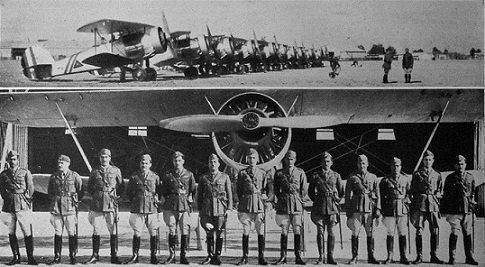
“I do not believe in the democracy of the English nor in the Nazism of the Germans nor in the Bolshevism of the Russians. I am an Arab Muslim.’
Salah al-Din al-Sabbagh
8 notes
·
View notes
Text
“I have always found it difficult not to be moved by Jerusalem, even when I hated it—and God knows I have hated it for the sheer human cost of it. But the sight of it, from afar or inside the labyrinth of its walls, softens me. Every inch of it holds the confidence of ancient civilizations, their deaths and their birthmarks pressed deep into the city’s viscera and onto the rubble of its edges... It sparks an inherent sense of familiarity in me—that doubtless, irrefutable Palestinian certainty that I belong to this land. It possesses me, no matter who conquers it, because its soil is the keeper of my roots, of the bones of my ancestors.”
- Mornings in Jenin by Susan Abulhawa (2010)
#free palestine#palestine#israeli occupation#israel#jerusalem#muslim#susan abulhawa#mornings in jenin#historical fiction#arab history#bookish#books and literature#book quotes#books#book blog
98 notes
·
View notes
Text
'Luxury Foods' in Medieval Islamic Societies by David Waines from World Archaeology, Vol. 34, No. 3, Luxury Foods (Feb., 2003)
"We may begin with the work entitled The Meadows of Gold written by the famous historian al-Mas'udi (d. AD 956). He was born in Baghdad and died in Cairo, having, in between, travelled widely in Persia and India in addition to Iraq, Palestine and Syria. The Meadows of Gold contains a number of anecdotes related to food. One involves the Abbasid Caliph, Harun al-Rashid (d. AD 809), of 1001 Arabian Nights fame. He was invited to dine by his brother Ibrahim b. al-Mahdi (d. AD 853), a noted poet and culinary expert, of whom more later.
Harun was served a dish of what appeared to be small and delicate slices of fish arranged in the shape of a fish. When informed that the dish was made from more than 150 fish tongues, the Caliph demanded to know its price and commanded that an equivalent of 1000 silver dirhams be distributed to the poor. This was in expiation, he said, for his brother's wastefulness. Moreover, he ordered a servant to take the fish on its plate, itself an expensive item worth five times as much as the fish preparation, and give it to the first beggar he met in the street.
A second anecdote involves another Caliph, al-Mutawakkil (d. AD 861), who was relaxing one day with his courtiers and singers beside one of the many canals that traversed Baghdad. He smelled the aroma of cooking drifting from a pot being prepared by a sailor on his boat. The Caliph ordered the pot - a beef sikbaj, a sweet and sour stew dish, brought immediately to him. The Caliph sampled the stew with a piece of bread, as did his courtiers and singers, until the pot was empty. He then ordered the pot filled with 2000 dirhams and returned to the boat; the coins that did not fit into the pot were placed in a pouch and given directly to the cook. In the Caliph's judgement the dish was the best sikbaj he had ever tasted."
I found this excerpt incredibly lovely and highly recommend you check out the whole thing on JSTOR (free to access when you make an account but also on scihub). Doing a short article review on it for my Global Connections module - covering Islamic history briefly has really touched me especially when I covered it quite begrudgingly as a child/pre-teen through Saturday-Sunday school. It was always a tug of war with my mother to make me go until at 16 I finally just refused outright and there was nothing she could do.
Admittedly out of all the classes taught at the mosque Tahrikh and Seerah always engaged me. I'm glad I can revisit it with a warm heart and with no expectation to be something I'm not so I can love share and appreciate it with fresh eyes.
#palestine#palestinian history#arab history#history#medieval history#islamic history#islam#iran#iraq#india#syrian history#syria#iranian history#indian history#sikbaj#food history#culinary#culinary history#world trade#global trade#medieval trade#spice trade#pbuh#university#london#hospitality#islamic empire#jstor#history of food
2 notes
·
View notes
Text
Where now discussions of Arab lesbians are 'silenced or censored', according to scholar Sahar Amer, they were once 'rich and diverse'.
2 notes
·
View notes
Text

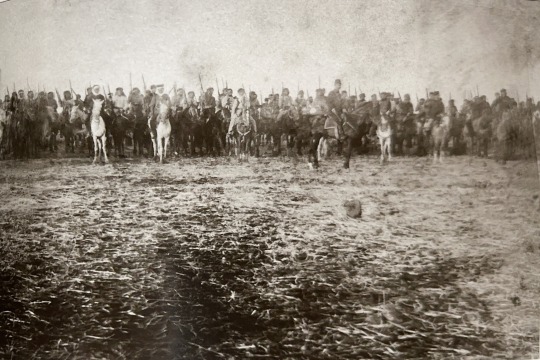

Bedouin culture
6 notes
·
View notes
Text

Painting for my worldbuilding I made around a year ago, exploring African and Arab attire in a bronze age setting. Hope you like it!
Best,
JCH
#dungeons and dragons#board games#concept art#fantasy art#tabletop games#digital painting#magic the gathering#character design#ancient history#armor#african#african history#black history#mali#ethiopia#arab#ancient arab#arab history#middle eastern
38 notes
·
View notes
Text
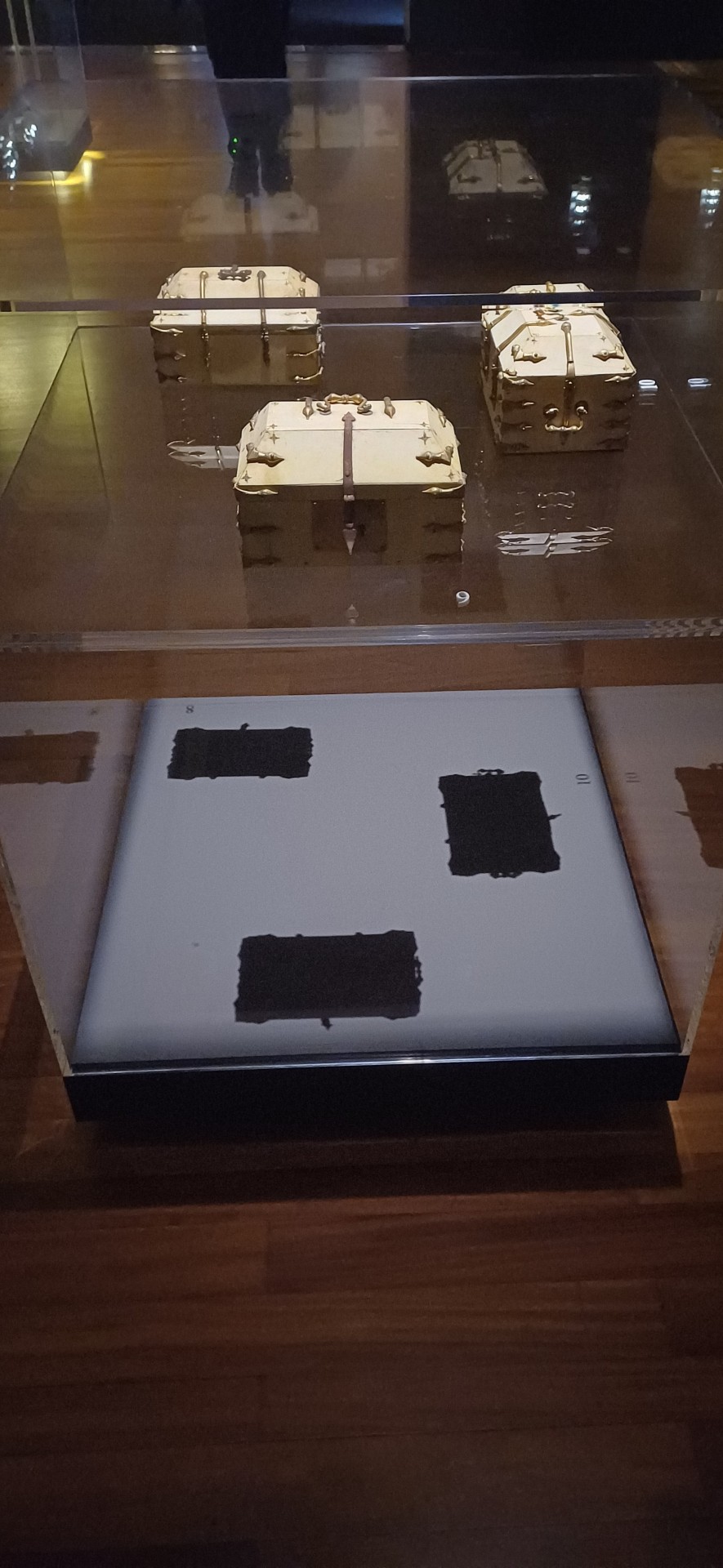

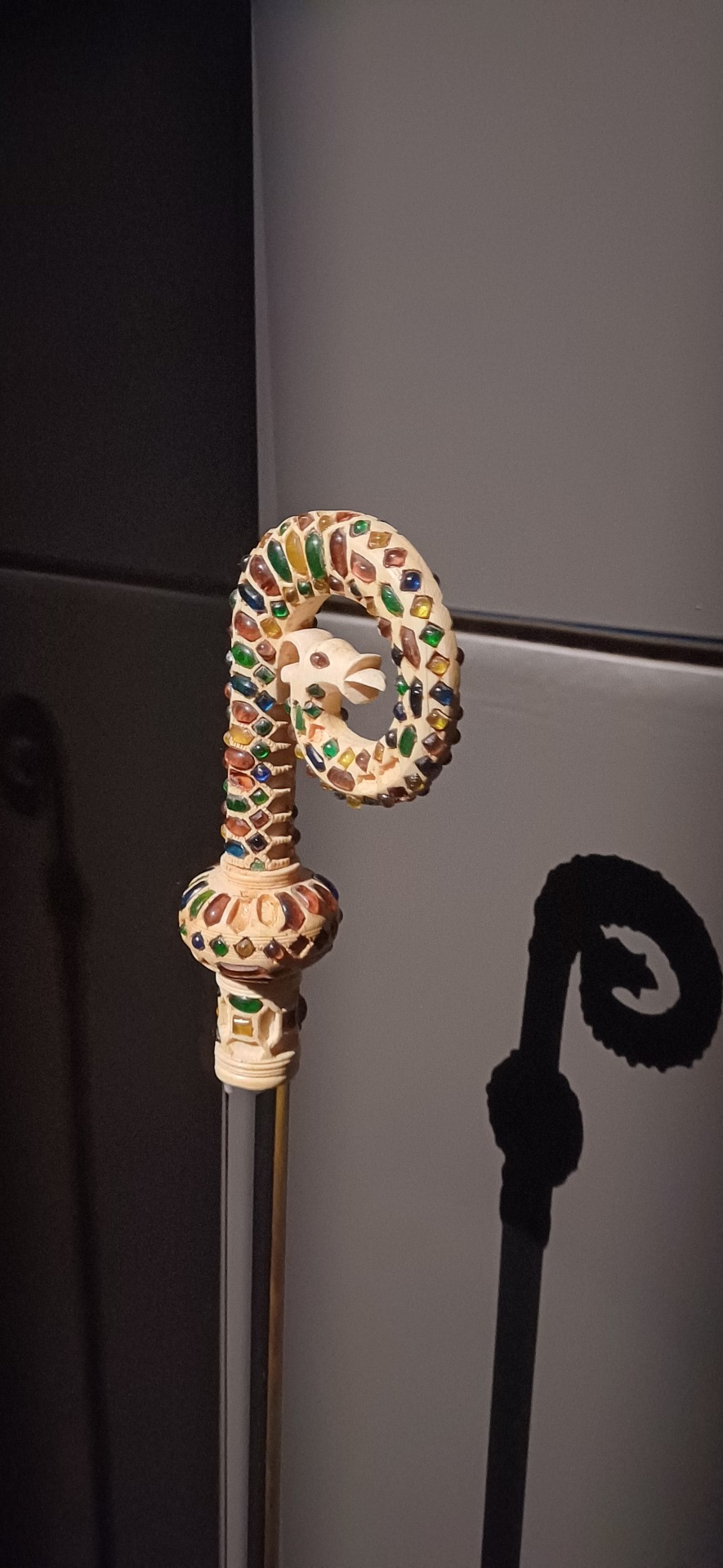

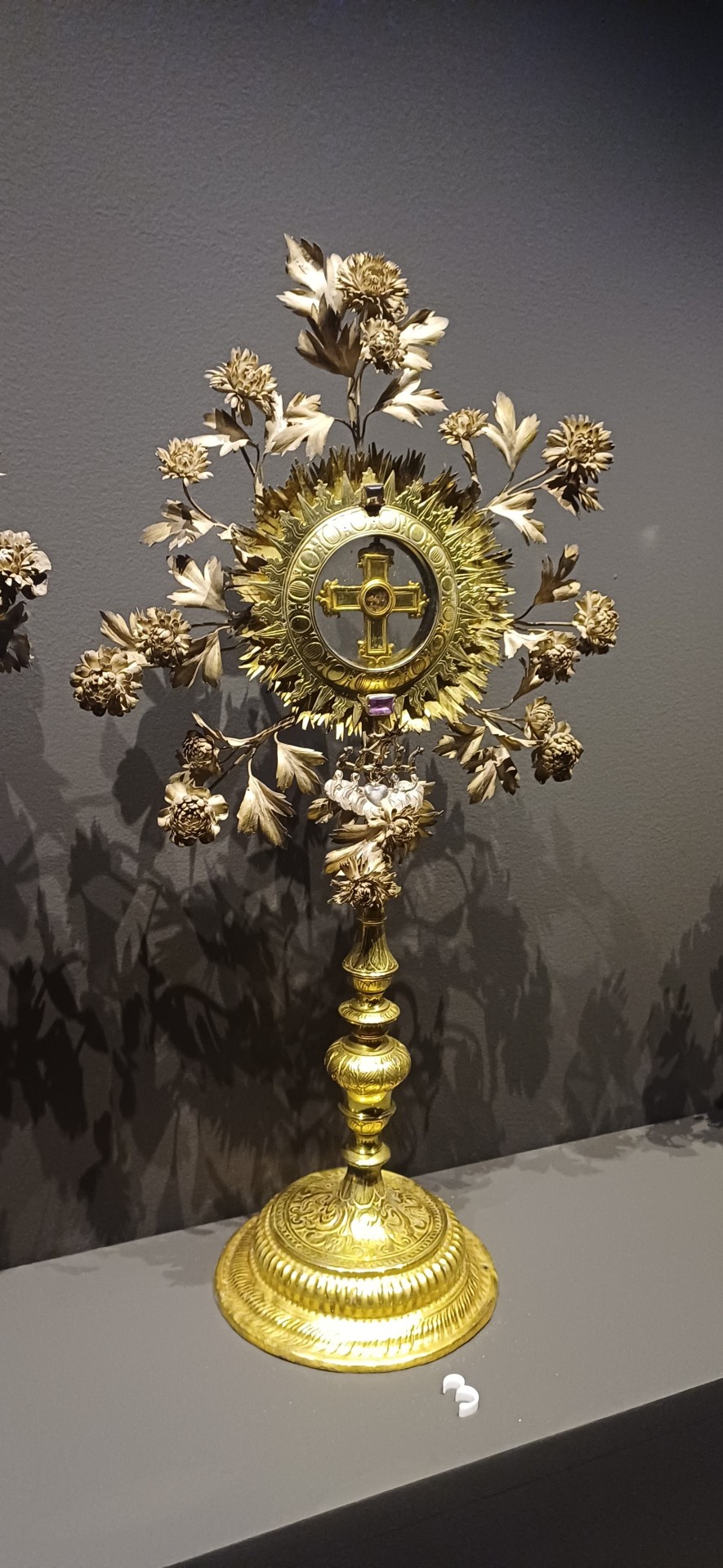
The Royal Palace or The Norman Palace of Palermo was constructed on the highest part of the city, above a Punic installation discovered in 1984 (located in the section under the Duke of Montalto Halls). During the Arab domination, the first nucleus was built between the rivers Kemonia and Papireto with characteristics that were typically defensive, that is why it was named “Qsar”, a term that in Arabic indicates more than a castle, but also a fortress for military assignments.
Some remains of the Moor civilization in Italy
2 notes
·
View notes